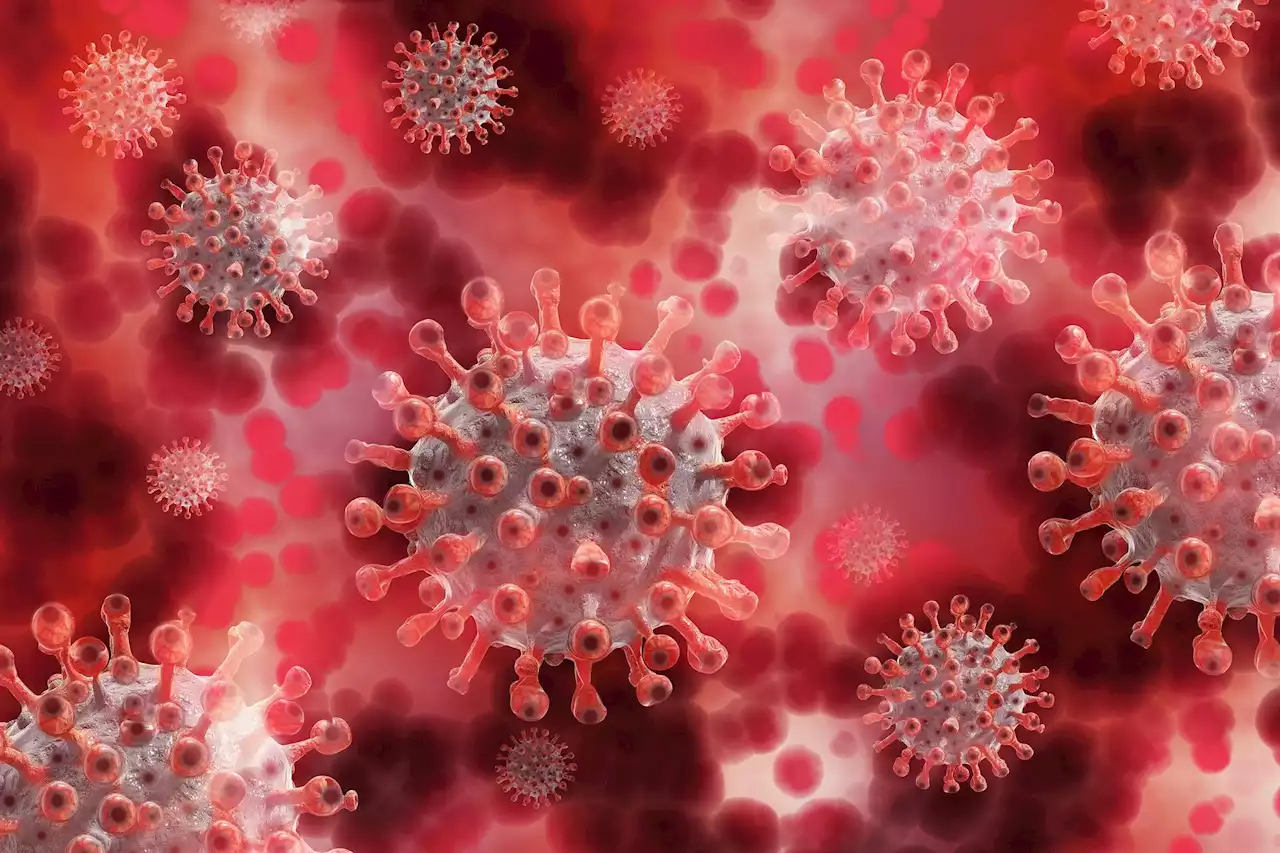NHS trusts will still have to make drastic cuts to key services next year even with the extra investment handed to them in the Autumn Statement, unless inflation and Covid levels reduce significantly 🔴 Exclusive from PMGallagher1
, which is currently over 12 per cent.
“If the extra cost pressure does materialise then trusts will look at all the areas they need to potentially cut – that includes things like capital investment where you don’t build those extra diagnostic centres or surgical hubs. It could mean you cut back on agency and locum spending and your waiting list grows.
“There is a broad expectation that the bite of inflation will be much more significant than the 3.2 per cent assumed in Thursday’s announcement,” she said. “As it stands, the growth in NHS funding over the next two years will be barely enough to keep up with the growing needs of an increasingly older population let alone tackle huge waiting lists. When push comes to shove, NHS organisations will likely be asked to reprioritise orAnita Charlesworth, director of research and the REAL Centre at the Health Foundation, believes the Treasury will come to regret their assumption that Covid has gone away.
“There are concerns many people are arriving at care with their disease more advanced than it would have been, so the intensity of their care that hospitals need to provide is even greater. And going into Covid, the NHS was really struggling to keep up anyway with an ageing population and more people have multiple long-term conditions.”
Ireland Latest News, Ireland Headlines
Similar News:You can also read news stories similar to this one that we have collected from other news sources.
 Excess deaths by sex and Age Group in the first two years of the COVID-19 pandemic in the United States - Health Care Management ScienceThe COVID-19 pandemic hastened hundreds of thousands of deaths in the United States. Many of these excess deaths are directly attributed to COVID-19, but others stem from the pandemic’s social, economic, and health care system disruptions. This study compares provisional mortality data for age and sex subgroups across different time windows, with and without COVID-19 deaths, and assesses whether mortality risks are returning to pre-pandemic levels. Using provisional mortality reports from the CDC, we compute mortality risks for 22 age and sex subgroups in 2021 and compare against 2015–2019 using odds ratios. We repeat this comparison for the first twelve full months of the COVID-19 pandemic in the United States (April 2020–March 2021) against the next twelve full months (April 2021–March 2022). Mortality risks for most subgroups were significantly higher in 2021 than in 2015–2019, both with and without deaths involving COVID-19. For ages 25–54, Year 2 (April 2021–March 2022) was more fatal than Year 1 (April 2020–March 2021), whereas total mortality risks for the 65 + age groups declined. Given so many displaced deaths in the first two years of the COVID-19 pandemic, mortality risks in the next few years may fall below pre-pandemic levels. Provisional mortality data suggest this is already happening for the 75 + age groups when excluding COVID-19 deaths.
Excess deaths by sex and Age Group in the first two years of the COVID-19 pandemic in the United States - Health Care Management ScienceThe COVID-19 pandemic hastened hundreds of thousands of deaths in the United States. Many of these excess deaths are directly attributed to COVID-19, but others stem from the pandemic’s social, economic, and health care system disruptions. This study compares provisional mortality data for age and sex subgroups across different time windows, with and without COVID-19 deaths, and assesses whether mortality risks are returning to pre-pandemic levels. Using provisional mortality reports from the CDC, we compute mortality risks for 22 age and sex subgroups in 2021 and compare against 2015–2019 using odds ratios. We repeat this comparison for the first twelve full months of the COVID-19 pandemic in the United States (April 2020–March 2021) against the next twelve full months (April 2021–March 2022). Mortality risks for most subgroups were significantly higher in 2021 than in 2015–2019, both with and without deaths involving COVID-19. For ages 25–54, Year 2 (April 2021–March 2022) was more fatal than Year 1 (April 2020–March 2021), whereas total mortality risks for the 65 + age groups declined. Given so many displaced deaths in the first two years of the COVID-19 pandemic, mortality risks in the next few years may fall below pre-pandemic levels. Provisional mortality data suggest this is already happening for the 75 + age groups when excluding COVID-19 deaths.
Read more »
 Study reveals neglected or late TB diagnoses related to COVID-19In a recent study published in the journal BMJ Medicine, researchers modeled changing patterns in sex- and age-stratified new and relapse tuberculosis (TB) case notifications reported to the World Health Organization (WHO) for 45 nations with high TB, TB/human immunodeficiency virus (HIV) and multidrug-resistant TB (MDR-TB) burden between 2013 and 2019 due to severe acute respiratory syndrome coronavirus 2 (SARS-CoV-2) infections.
Study reveals neglected or late TB diagnoses related to COVID-19In a recent study published in the journal BMJ Medicine, researchers modeled changing patterns in sex- and age-stratified new and relapse tuberculosis (TB) case notifications reported to the World Health Organization (WHO) for 45 nations with high TB, TB/human immunodeficiency virus (HIV) and multidrug-resistant TB (MDR-TB) burden between 2013 and 2019 due to severe acute respiratory syndrome coronavirus 2 (SARS-CoV-2) infections.
Read more »
 Study finds risk of seizures is higher after COVID-19 than after influenzaPeople who have a COVID-19 infection are more likely to develop seizures or epilepsy within the next six months than people who have an influenza infection, according to a study published in the November 16, 2022, online issue of Neurology. The increased risk was more noticeable in children than adults. It was also more noticeable in people who did not need hospitalization for COVID-19 infections.
Study finds risk of seizures is higher after COVID-19 than after influenzaPeople who have a COVID-19 infection are more likely to develop seizures or epilepsy within the next six months than people who have an influenza infection, according to a study published in the November 16, 2022, online issue of Neurology. The increased risk was more noticeable in children than adults. It was also more noticeable in people who did not need hospitalization for COVID-19 infections.
Read more »
 China asks retired military and government staff to boost production at COVID-hit iPhone factoryThe Chinese government has called on retired military and government workers to help boost production at the world's largest iPhone factory amid COVID staff shortages
China asks retired military and government staff to boost production at COVID-hit iPhone factoryThe Chinese government has called on retired military and government workers to help boost production at the world's largest iPhone factory amid COVID staff shortages
Read more »
 A heavy burden of family financial stress from COVID on mental health of adolescentsIn a recent study published in The Lancet Regional Health - Americas, journal researchers examined the impact of the financial stress associated with the coronavirus disease 2019 (COVID-19) pandemic on the mental health of adolescents in the United States (U.S.).
A heavy burden of family financial stress from COVID on mental health of adolescentsIn a recent study published in The Lancet Regional Health - Americas, journal researchers examined the impact of the financial stress associated with the coronavirus disease 2019 (COVID-19) pandemic on the mental health of adolescents in the United States (U.S.).
Read more »
 Studies provide latest 'real world' evidence on effectiveness of COVID-19 treatmentsTwo studies published by The BMJ today provide up to date evidence on the effectiveness of both currently licensed and possible COVID-19 treatments under everyday ('real world') conditions, helping to shed more light on whether these drugs can prevent people from becoming seriously ill.
Studies provide latest 'real world' evidence on effectiveness of COVID-19 treatmentsTwo studies published by The BMJ today provide up to date evidence on the effectiveness of both currently licensed and possible COVID-19 treatments under everyday ('real world') conditions, helping to shed more light on whether these drugs can prevent people from becoming seriously ill.
Read more »
